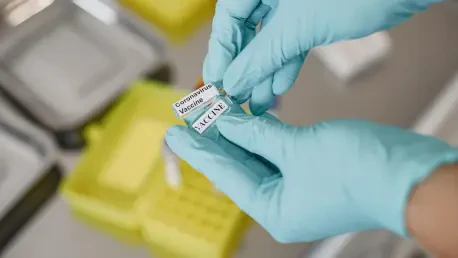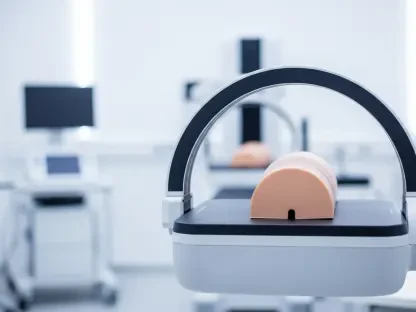Living with a condition like generalized pustular psoriasis (GPP) brings a unique set of challenges characterized by unpredictable skin flare-ups that can devastate both physical health and emotional well-being. Imagine managing an illness where each day might usher in severe, painful blisters, interfering with the simplest daily tasks. Surprisingly, GPP’s impact is not limited to direct symptoms—complications can escalate to life-threatening conditions like sepsis, heart failure, and kidney failure. The question remains: why are treatment options so limited for such a pervasive disorder?
Experts in dermatological healthcare welcome the recent development, marking a significant turn in GPP management. The National Institute for Health and Care Excellence (NICE) has embraced Boehringer Ingelheim’s Spevigo (spesolimab) as an important therapeutic arsenal combating this severe form of psoriasis, offering a fresh outlook to patients and caregivers alike. This breakthrough presents a refined approach, promising enhanced skin clarity and a reprieve from the vicious cycle of flare-ups, propelling healthcare accessibility to new heights.
Understanding Spevigo’s Mechanism and its Clinical Efficacy
Spevigo distinguishes itself from existing GPP treatments, such as ciclosporin and biologics, by uniquely targeting the interleukin-36 pathway. This biochemical pathway is increasingly spotlighted for its pivotal role in autoimmune disorders, cresting a wave in dermatological pharmacology. Unlike other medications—largely repurposed and off-label for GPP—Spevigo offers a directed, innovative strategy with the potential to spare patients from the trial-and-error processes typical of treatment plans.
The Effisayil 1 trial further corroborates Spevigo’s potential. With results showing significant statistical improvements over placebo, the study underscores Spevigo’s ability to achieve clearer skin in GPP patients. Such findings herald a new era for therapeutic options, offering hope to those struggling with this relentless disease. The distinct edge that Spevigo offers lies not only in efficacy but also in the promise of a more predictable and safer management pathway for patients.
Voices of Hope: Perspectives from Patients and Experts
The Psoriasis Association has voiced its support for NICE’s decision, acknowledging its substantial impact on GPP patients’ lives. This endorsement illustrates the shift toward more comprehensive care approaches, emphasizing the role of innovative treatments in alleviating patient anxiety tied to recurrent symptoms. Medical professionals, too, are optimistic, expressing hope that Spevigo will address current gaps in treatment and provide substantial relief to those burdened by the disease’s unpredictability.
One patient’s story vividly captures the life-changing potential of this recommendation. After years of grappling with sudden and severe skin eruptions, the idea of a solution that targets the ailment’s root cause brings newfound optimism. This treatment shines as a beacon for many, promising not just medical improvement but a reclaiming of quality of life and confidence lost to the fear of unexpected outbreaks.
Navigating New Treatment Landscapes
For patients, the recommendation of Spevigo signals a turning point in treatment opportunities. Access to this novel therapy requires close collaboration with healthcare providers to understand eligibility and integrate it into existing care plans. Patients are encouraged to actively engage in conversations with their doctors about Spevigo, discussing possibilities, potential side effects, and management strategies to navigate their condition with confidence.
Managing GPP alongside emerging treatments requires more than pharmaceutical intervention. Patients should also explore lifestyle adjustments, including stress management and skin care routines, which complement medical therapies. Awareness of treatment innovations like Spevigo empowers patients, changing the narrative from one of limitation to one brimming with potential.
In retrospect, two years have passed since NICE’s commendable decision to endorse Spevigo, shedding light on GPP’s relentless challenges. This move paved a path for future advancements in psoriasis treatments, fortifying hope for a disease once considered to have limited options. Aided by collective efforts from healthcare entities and patients, the landscape of GPP treatment embarked on a transformative journey unlike ever before.









